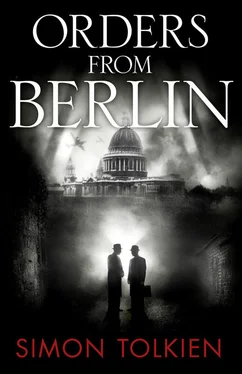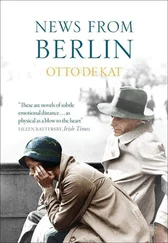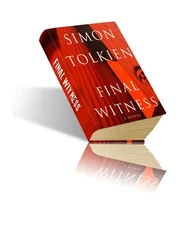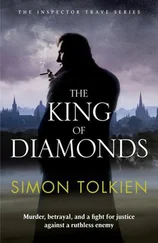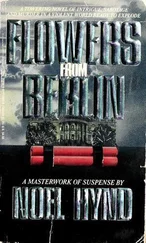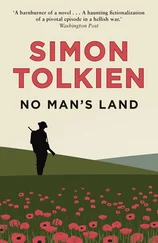Simon Tolkien - Orders from Berlin
Здесь есть возможность читать онлайн «Simon Tolkien - Orders from Berlin» — ознакомительный отрывок электронной книги совершенно бесплатно, а после прочтения отрывка купить полную версию. В некоторых случаях можно слушать аудио, скачать через торрент в формате fb2 и присутствует краткое содержание. Жанр: Полицейский детектив, на английском языке. Описание произведения, (предисловие) а так же отзывы посетителей доступны на портале библиотеки ЛибКат.
- Название:Orders from Berlin
- Автор:
- Жанр:
- Год:неизвестен
- ISBN:нет данных
- Рейтинг книги:4 / 5. Голосов: 1
-
Избранное:Добавить в избранное
- Отзывы:
-
Ваша оценка:
- 80
- 1
- 2
- 3
- 4
- 5
Orders from Berlin: краткое содержание, описание и аннотация
Предлагаем к чтению аннотацию, описание, краткое содержание или предисловие (зависит от того, что написал сам автор книги «Orders from Berlin»). Если вы не нашли необходимую информацию о книге — напишите в комментариях, мы постараемся отыскать её.
Orders from Berlin — читать онлайн ознакомительный отрывок
Ниже представлен текст книги, разбитый по страницам. Система сохранения места последней прочитанной страницы, позволяет с удобством читать онлайн бесплатно книгу «Orders from Berlin», без необходимости каждый раз заново искать на чём Вы остановились. Поставьте закладку, и сможете в любой момент перейти на страницу, на которой закончили чтение.
Интервал:
Закладка:
The bombardment goes on all night, crashing in our ears like an endless thunder. There’s no point in talking — we can’t hear ourselves speak, and so I write, leaning on the firestep, crouching over the flickering butt of a candle, thinking of home. Our brigade is in reserve and we can see the gun crews stripped to the waist for work — they bring up water in buckets and throw it down on the smoking barrels. The guns are lined up wheel to wheel. They never stop firing, but there’s a rumour going down the line that a German plane scored a direct hit on our ammunition dump two days back and that we haven’t got enough of the heavy stuff to smash their wire. Who knows if it’s true? But I’m glad it’s the Boche, not us getting shelled.
A grey watery dawn breaks over the redoubt and the drumfire reaches a crescendo. There are sappers with red and green armbands coming through our trenches carrying cylinders made of iron. We know what they are but we say nothing. Chlorine gas is no way to fight a war. Don’t they know that?
Seaforth’s hand shook as he turned the page to read the next entry.
The 26th and 28th Brigades went over at half past six. We heard the whistles and the shouts and the German machine guns starting up. With a trench periscope you can see. I looked and there was the gas cloud — yellowish green and drifting eastwards, thank God. Will the wind blow it back towards us? No one knows what is happening up ahead. We put on our masks, tuck them into our tunics and wait.
Later in the morning we went up into the front line, awaiting the order to go over. The trench was full of our dead and wounded — those who fell back from off the parapet at zero hour and those that have crawled back in from no-man’s-land. There was a man out in front of us a little way, crying and screaming with pain. But he was brave — between his cries he shouted at us not to come out for him — fifteen yards away and it would be certain death to bring him in. Poor devil! He stopped his wail around noon.
At half past three our sergeant gave us rum, walking down the trench with a canteen and a table spoon, like he was a mother giving her children medicine at home. But this is not to make us better; it’s to make it easier to die.
And then it’s strange how everything is frozen in the last moment before we go, like in a photograph — scaling ladders against the sandbagged walls; bayonets fixed; officers looking at their watches, whistles in their mouths; the rain beginning to fall; and someone somewhere plaintively playing a mouth organ — a dirge for the dead, because that is what we are — if not today, then tomorrow or next week. There is no escape.
And suddenly it was a frenzy of activity — we were climbing and rushing and falling, and the machine gun bullets were hitting the ground like hailstones, ripping through the grass like wind. Impossible to go forward and impossible to go back. The battlefield was no more than a series of shell holes in which men crouched, waiting for the end. Beside me in mine was a Highlander I didn’t know. I gave him water. ‘Straighten my legs,’ he asked me in a whisper. ‘They’re all crooked.’ But he had no legs to straighten — they’d been blown clean away, and so I touched the bones of his thighs and he had to be satisfied with that.
Seaforth shut the book hard and closed his eyes. Twenty-five years separated him from this place that he had never seen and that no longer existed, yet the Loos trenches were more real to him than the room in which he was sitting. Abruptly he got up from his chair and went and fixed himself a drink. He felt sick. He wanted to put the diary away, but it was like a drug addict’s needle. Sooner or later he always went back to it.
He turned the pages forward into the month of October.
The rats in our trenches grow bigger by the day. They live in the corpses. If we kill them they putrefy and then it is worse than if we left them alive. I feel them when I sleep, running.
My right arm has started to shake. I can hardly fire my rifle. It’s getting worse every day. The medic says I must grin and bear it.
Enough! Seaforth needed no reminding of what came next. He put down the book and got up, pacing the room. He was like a volcano waiting to explode. The anger inside him, so long bottled up, was bubbling to the surface. He needed distraction, and Ava could provide it. If not her, it would need to be someone else. He’d be a fool not to take advantage of the opportunity. He went into his bedroom to get dressed.
CHAPTER 5
Almost all day Ava had sat in her husband’s chair at the kitchen table, drinking successive cups of foul-tasting black Camp Coffee and eating nothing as she gazed sightlessly out through the window at a grey patch of overcast sky and the red-brown chimney stacks of the houses on the other side of the street. She sat without moving, but inside her head she was possessed by a feverish anxiety as she tried and failed to make sense of all that had happened since the fateful evening ten days earlier when she had witnessed her father’s murder.
Her husband had killed her father. She kept repeating the sentence back to herself, and with every repetition it made less sense. The police said that Bertram had done it because he needed money. But how and why had Bertram run up such terrible debts when they’d lived practically like paupers ever since they were married? Maybe she could have found the answer hidden away among the documents in Bertram’s desk, but it was too late to look now. Anything of any significance had been taken away by Inspector Quaid and his minions. The papers that were left were still strewn across the floor of the living room. She hadn’t had the energy to pick them up.
Three days earlier, when she found the cuff link in the top drawer, Ava had been certain of her husband’s guilt. But all the thinking she’d done since had made her less sure. It wasn’t that she found the evidence against him any less compelling; rather, it was that she couldn’t visualize him as a murderer. She glanced up at his ridiculous war map covered with the coloured pins that he’d spent hours repairing and replacing after she’d torn it down during their first big argument after the murder. Like all armchair soldiers, he was a coward. If he’d needed to kill, he’d surely have poisoned his victim, not engaged in a wrestling contest.
Yet there was the evidence and now a confession too. Bertram was probably guilty. But probability was not the same as certainty, and it was certainty that she craved. And if it wasn’t Bertram who’d killed her father, then who else could it be? Ava didn’t believe the accusations against Seaforth that Alec Thorn had made to the police inspector. It was obvious that Thorn didn’t like Seaforth seeing her, and the two of them were rivals at work, but she still couldn’t get what he’d said out of her mind.
She got up and went into the bathroom to look in the mirror. She looked terrible — haggard and hollow-eyed. Seaforth was a handsome, successful man. He could have any girl he wanted, so why her? She knew nothing about him except that he was a spy, and she’d read enough about espionage to know that spies always had reasons for their actions. So what were Seaforth’s reasons? She found it hard to believe that he was motivated solely by an altruistic concern for her welfare, as he claimed, but she realized that the only way she was going to discover the truth was to see him again. Which was why she hadn’t hesitated about accepting his invitation to dinner when he had called up on the day before. But then afterwards she’d realized that she wanted to see him too. She thought of his blue eyes and the way his thick dark hair fell over his forehead. He wore it long, unfashionably long, so that it almost reached his collar, but she liked it just the way it was. It belied his athletic build and his muscular frame and made him seem feminine somehow, able to understand how women felt.
Читать дальшеИнтервал:
Закладка:
Похожие книги на «Orders from Berlin»
Представляем Вашему вниманию похожие книги на «Orders from Berlin» списком для выбора. Мы отобрали схожую по названию и смыслу литературу в надежде предоставить читателям больше вариантов отыскать новые, интересные, ещё непрочитанные произведения.
Обсуждение, отзывы о книге «Orders from Berlin» и просто собственные мнения читателей. Оставьте ваши комментарии, напишите, что Вы думаете о произведении, его смысле или главных героях. Укажите что конкретно понравилось, а что нет, и почему Вы так считаете.
